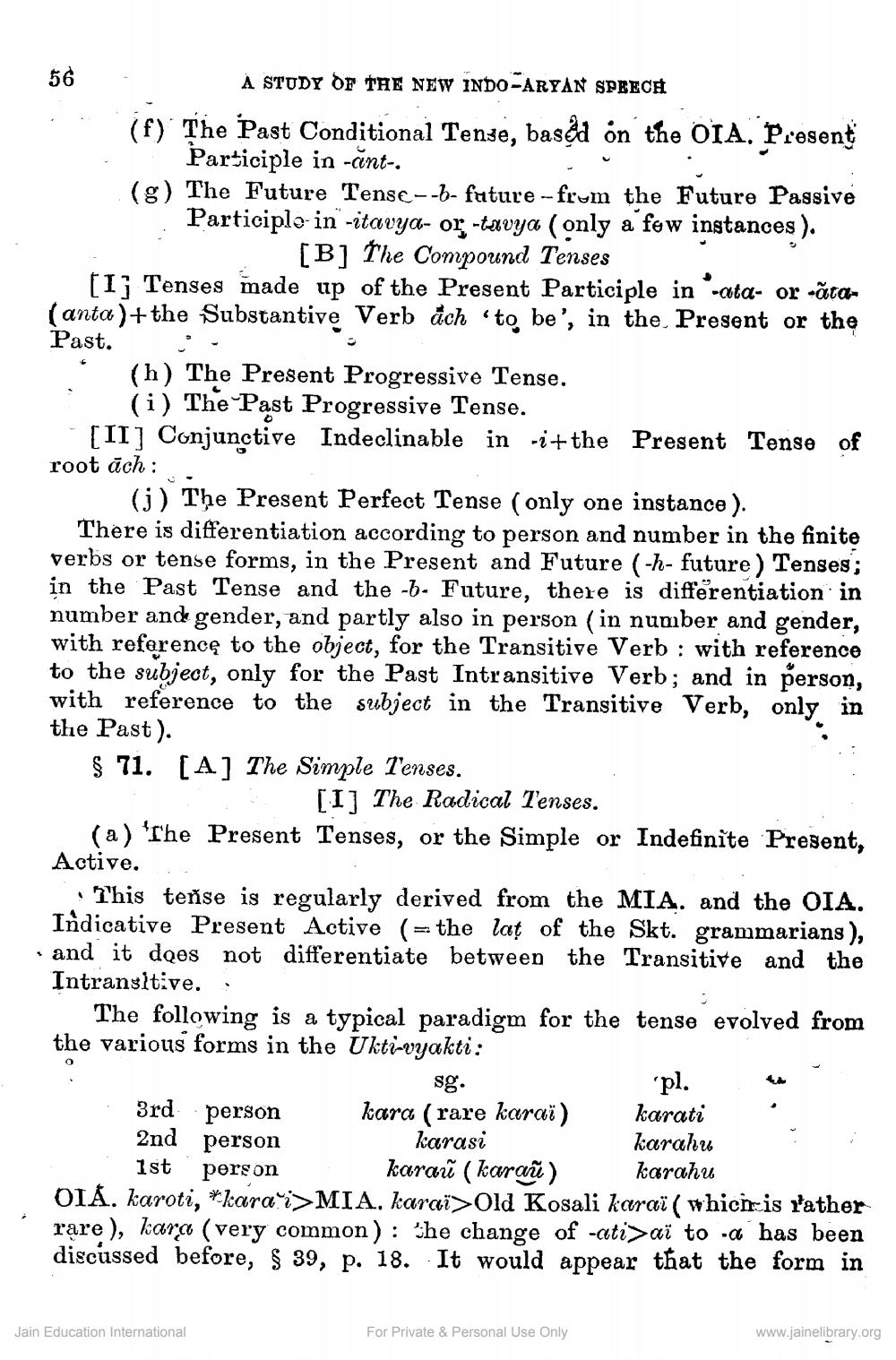________________
56
A STUDY OF THE NEW INDO-ARYAN SPEECH
(f) The Past Conditional Tense, based on the OIA. Present Participle in -ant-.
(g) The Future Tense--b- future-from the Future Passive Participle in itavya- or -tavya (only a few instances). [B] The Compound Tenses
+
[1] Tenses made up of the Present Participle in -ata- or -ata(anta)+the Substantive Verb ach 'to be', in the Present or the Past.
C
(h) The Present Progressive Tense. (i) The Past Progressive Tense.
[II] Conjunctive Indeclinable in i+the Present Tense of
root ach:
(j) The Present Perfect Tense (only one instance).
There is differentiation according to person and number in the finite verbs or tense forms, in the Present and Future (-h- future) Tenses; in the Past Tense and the -b- Future, there is differentiation in number and gender, and partly also in person (in number and gender, with reference to the object, for the Transitive Verb: with reference to the subject, only for the Past Intransitive Verb; and in person, with reference to the subject in the Transitive Verb, only in the Past).
§ 71. [A] The Simple Tenses.
[1] The Radical Tenses.
(a) The Present Tenses, or the Simple or Indefinite Present, Active.
This tense is regularly derived from the MIA. and the OIA. Indicative Present Active (the lat of the Skt. grammarians), and it does not differentiate between the Transitive and the Intransitive.
The following is a typical paradigm for the tense evolved from the various forms in the Ukti-vyakti:
0
Jain Education International
'pl.
3rd person
karati karahu
2nd person 1st person
karau (karaũ)
karahu
OIA. karoti, *kara i>MIA. karai>Old Kosali karai ( which is rather rare), kara (very common): the change of -ati>aï to -a has been discussed before, § 39, p. 18. It would appear that the form in
sg.
kara (rare karaï) karasi
For Private & Personal Use Only
ده
www.jainelibrary.org




